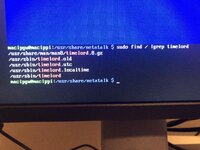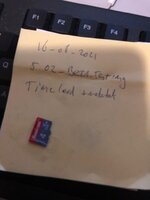cheesestraws
Well-known member
insert wibbly flashback effects here
"It would be nice to run my macs without a PRAM battery," you say, "but I like having the right time, and I am using LocalTalk."
Timelord and Tardis are your friends here. You can sync clocks over AppleTalk in a similar way as you would with NTP, but with much lower overhead; it'll run off a floppy with System 6. But the Timelord time server in netatalk2 has been broken for approximately ever. I have fixed this.
A question I get often, with regard to this and Force32: "do you have something against PRAM batteries?". Yes, yes, I do: it's personal.
insert even wibblier even more flashback effects here
In 1990 the University of Melbourne produced something for their Mac labs that would make sure that their user-facing Macs kept the right time, and they shared this with the world. This consisted of two bits: a chooser extension called Tardis, that allowed selection of a time server, and a CDEV called Timelord, which implemented that time server on another Mac (presumably a server).
A UNIX version of the time server was built into the Columbia AppleTalk Package; then rewritten totally for inclusion in netatalk. During this rewrite, it was totally broken on anything other than 32-bit big endian machines, and it stayed broken. (Technical details of what went wrong in another post below, probably).
insert wibbling the other way to denote a return to some approximation to the present
I fixed it. There, that's the story. Here are attached two files: the first, TARDIS.CPT.ZIP is a zip-compressed compact pro archive (to get around file name restrictions on the forum at the moment...) which is the original Tardis/Timelord distribution from the University of Melbourne (I do not recommend using the Timelord CDEV; I've never got the thing to work properly.)
timelord.zip is a patched version of the netatalk2 timelord server so it works. To build it, make sure you have netatalk2 installed and the normal build chain for your OS; edit build.sh and change the include and library paths for your specific OS (the default is for pkgsrc under NetBSD) and run ./build.sh.
You can copy the resulting executable on top of the one provided by netatalk2 and it will make it work, or you can do something more complicated. Your call.


